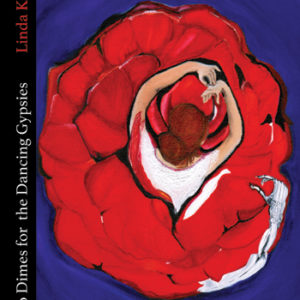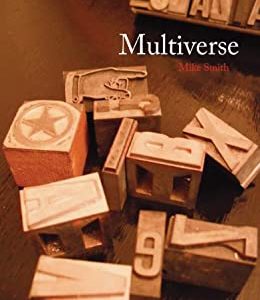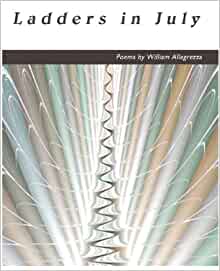Heisenberg’s Salon by Susan Lewis
$16.00
Tiny stories, or large poems, Susan Lewis’s writing features exacting, figurative frames, windows in which glimpses of oneself are prismy, apposed by some other real—allegory—sounded in language’s slanted order (ardor?—(yes)). —Dale Smith
Tiny stories, or large poems, Susan Lewis’s writing features exacting, figurative frames, windows in which glimpses of oneself are prismy, apposed by some other real—allegory—sounded in language’s slanted order (ardor?—(yes)).
—Dale Smith
The compressed cognitive fields of Heisenberg’s Salon enact paradoxes of nearness: the fundamental limits to the precision with which pairs—lovers, familiars, bodies, properties—can be known. Lewis’s poems explore the uncertainty principles that govern attempts to know the position and momentum of human couplings, inextricably caught in the flux of thought and circumstance: “But if she didn’t marry her current husband, who would her children be? & how would she know how to better raise those hypothetical strangers? His sleep disrupted by his wife’s agitation, her flawed but compatible spouse mumbled something indecipherable.” Language itself subsumes that flux—Lewis is keenly aware that her medium predetermines and enmeshes her speakers’ thoughts before they have the chance to clear their throats. Her measured sentences present gravitational fields of idiomatic speech—“crossed wires,” “at cross purposes,” “too much of a good thing,” “hatchet jobs,” “too little, too late,” “turning a deaf ear,” “face the consequences, which were all over the literal and figurative map”—a process that torques and exposes the oddities of the vernaculars that surround us. In its final section, the idioms of the media ever at hand, the book moves into fables of post-paper and post-meat dystopias, and bears witness to the cataclysmic resurrection of the pathetic fallacy in an emotive boulder. Wry, bemused, cool to the touch, these poems know that language forms can never approximate “her equivocal heart,” yet they manage to find meaning and pathos even in its evacuation: “Many were the days she had nothing to say, or less.”
—BK Fischer
Susan Lewis’s Heisenberg’s Salon is a treat to read. These prose poems carry a tension between surprise and predictability, an exquisite balance which opens new inroads into both form and meaning. In prose poems which waste not a word, Lewis is extremely adept at creating expectations that she gently, consistently, benevolently machinates against—in the process delivering suggestions of definitions which might be indelicate if attempted directly. Like the misleadingly conventional newsreel opening of Citizen Kane, the first section of this book strings us along with expert decodings of relationships, or relationships gone wrong, delivering the straitened independence that often ensues from such disasters. However, Lewis does not speak in the voice of grief, or disaster, or even regret. Although the title of the book might suggest relativity, adaptability seems more Lewis’s game here, an adaptability that should not be mistaken for moral relativity. After setting out personal parameters to measure desire versus conformity in the first section, ending with a minimalist descent into the lower orders of the Maslowian hierarchy, the remaining sections take us into increasingly fine explorations of metaphysical tensions, as if clearing away the debris of ordinary friendship and intimacy to make more rarefied excursions possible. There is an effective internal rhythm within and between the sections; Lewis knows exactly when to use a very short poem for maximum impact, or to extend one just as an “epiphany” has been reached and needs to be drawn out, to make the point that epiphanies are not momentary, but strung out along entire lifetimes. Form perfectly fits content as these subtle poems explore subjectivity versus empirical reality, spirituality versus material commitment, time and mortality versus eternal life, the animate versus the inanimate (boulders, trees), and finally individual creativity and dreamfulness versus the constitution of god or utopia as our collective projections. Reading Heisenberg’s Salon makes us aware of a poet whose moral calm we need in an era when the divisions amongst us are being elaborated, rather than collapsed, for anti-humanistic ends. It takes a lot of courage to put together a collection like this.
—Anis Shivani
There is a wise, gentle ire — ancient but not old — running through the brilliant prose poems of Susan Lewis’s Heisenberg’s Salon. This ire is embodied by a woman (maybe the poet, maybe not) who changes with each poem, and yet remains the same. In one poem, she wonders whether a unicorn of impossible radiance will show up at her picnic. She knows it won’t, but her annoyance lands, not on the unicorn, but on the wine: it falls a little short. In another, she admits that her life is all illusion, but “rather / than bemoan the shortcomings . . . she resolved to / cultivate its restorative potential: lingering and loitering, biding her / time, resting up for the thrill of the night.” Both poet and woman question the expectation of reality in every poem, but remain bent on subverting it any way they can. Perhaps by tweaking the laws of physics. The beauty of Heisenberg’s Salon is that anything is probable.
— Sharon Mesmer
Book Information:
· Paperback: 80 pages
· Binding: Perfect-Bound
· Publisher: BlazeVOX [books]
· ISBN: 978-1-60964-269-3
$16
Add a Review
Be the first to review “Heisenberg’s Salon by Susan Lewis”
You must be logged in to post a comment.











































Reviews(0)
There are no reviews yet.